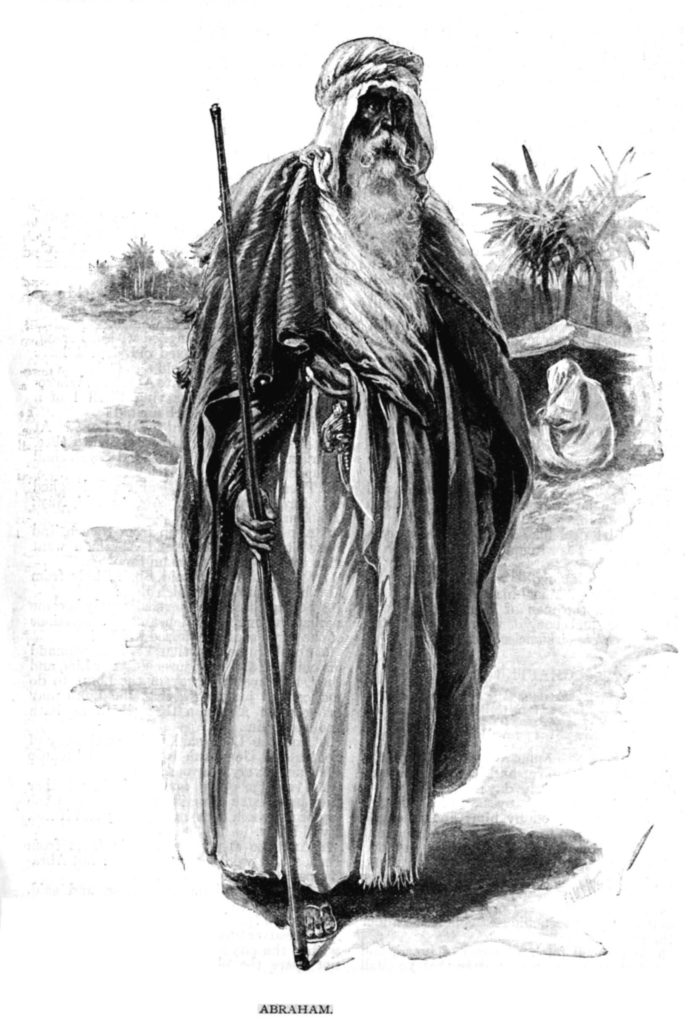
Genesis 12:4, So Abram departed.(cp. Gen 15:6, And he believed in YHVH and he accounted it to him for righteousness.) Abraham showed evidence of a circumcised heart in his belief in and willing obedience to YHVH long before he was circumcised physically. Heart circumcision precedes the physical act. The latter, like ritual of baptism for the remission of sin, is merely an outward expression of a preexisting inner reality.
Genesis 12:7, 8 (also 13:4, 18; 22:9 cp. 26:25; 33:20; 35:1, 3, 7), There he built an altar to YHVH. Altar is the Hebrew word mizbe-ach meaning “a place to slaughter for sacrifice.” Note that nearly wherever Abraham went in the Promised Land, he built a place to worship YHVH through sacrifice. Today, we make sacrifice to YHVH through our praise and worship (Ps 69:30–31; Jer 33:11; Heb 13:15,16) and with our lips by prayer (Hos 14:2). All that we do should be a living sacrifice to YHVH (Rom 12:1). The redeemed of the most high are now to YHVH a spiritual house and a set-apart and royal priesthood called to offer up spiritual sacrifices acceptable to Elohim through the blood of Yeshua (1 Pet 2:5,9).
Do we follow the example of our father Abraham and seek first the kingdom of Elohim and his righteousness (Matt 6:33) in all that we do wherever we go by building an “altar” — a place of worship?
Genesis 12:7, (also 13:4), Called on the name of YHVH. Call is the Hebrew word qara meaning “to call out, recite, read, cry out, proclaim, to summon, to invite, call for.” (See also Gen 4:26). The psalmist declares that YHVH is near to those who call (qara) upon him in truth (Ps 145:18), and Isaiah says that YHVH will answer the call (qara) of the righteous. The day is coming when YHVH will restore to his people a pure language so that they will be able to call (qara)upon his name of YHVH and serve him with one consent (Zeph 3:9). At that time, we will know for certain the proper pronunciation of YHVH!
Genesis 12:8, Bethel…Hai. Abraham pitched his tent somewhere between these two cities whose meaning is, respectively, “house of El” and “a heap of ruins.” Figuratively and spiritually, that’s where most of us find our lives—between the blessing and the curse, between the perfect and blessed will of Elohim as a result of our obedience to his will, and a ruinous place because of our disobedience to his will. For example, when Abraham left Canaan—the place Elohim told him to move to—and went down to Egypt (Gen 12:10), the results were ruinous—he almost lost his wife to the king of Egypt. Hai represents the place we end up spiritually as a result of being tempted by our flesh to disobey YHVH—the results of sin and disobedience.
Genesis 12:10, Down to Egypt. Abraham left the Canaan, representing YHVH’s perfect will for Abraham, and went down (not up) to Egypt, albeit to escape famine. Instead of trusting Elohim to provide for him in Canaan, he Abraham compromised and relied on his own flesh and went down to Egypt to seek food, which almost resulted in him losing his wife to the king of Egypt, and then to his being deported from Egypt. When we leave the perfect will of Elohim for our lives and trust in our own mind, it results in our “going downhill” spiritually.
Genesis 13:1, 3, And Abram went up out of Egypt … even to Bethel. The Jewish sages note the significance of this passage in that one always speaks of “going up” or “making aliyah” (i.e. ascending) to the land of Israel and Jerusalem. Going up from what to what spiritually speaking? Here the country Abram is leaving represents what spiritually? Where does he end up? What does the name Beth-el mean? Doesn’t this speak of the spiritual journey each of us is on as we leave the spiritual servitude, bondage and slavery of the world, flesh and the devil seeking to “dwell in the house of YHVH forever” as David states in Psalm 23:6?
Genesis 13:5–13, Abraham versus Lot. The account of Abram and Lot is very revealing concerning each individual’s character. One was greedy and selfish; the other was a peacemaker even to his own detriment esteeming others better than himself (or “in honor preferring one another,” Rom 12:10). Abram lived by the kingdom principles of give and it shall be given to you; whoever is greatest let him be the servant; and die to self in order to live. What were the end results of this approach in Abram’s life? Where did Lot’s orientation eventually get him? Loss or gain? Discuss and reflect on the motives and actions of your own life in this regard.


Qara-meaning to invite! YHVH invade my space!
The ‘qoof’ in qara represents the place of least resistance at the back of the head and is the entry point for the Ruach HaKodesh; example: the tongoes of fire Acts 2:3-4.
John
I like it! thanks 🙂